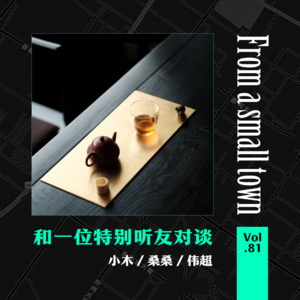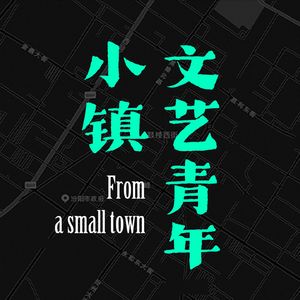
Deep Dive
Why did Wei Chao decide to reject the job offer from the headhunting company after graduation?
Wei Chao rejected the job offer because he realized that after five years, he would still be doing the same work as his colleague who had been there for five years. He didn't want to live a repetitive life and sought a more fulfilling path.
What motivated Wei Chao to join the Western Volunteer Program in Xinjiang?
Wei Chao joined the Western Volunteer Program in Xinjiang after discovering it on his university's website on the last day of registration. He was open to trying new opportunities and decided to take the chance, which eventually led him to become an assistant to the commander of the volunteer program.
How did Wei Chao transition from being an independent journalist to working in the creative field?
Wei Chao transitioned to the creative field after writing a long poem that caught the attention of a public artist. This led to an invitation to join a think tank focused on artificial intelligence and public art, where he eventually became a partner.
What was Wei Chao's experience with marriage and divorce, and how did it impact him?
Wei Chao married his ex-wife without much preparation for married life, leading to a relationship that felt more like a partnership than a marriage. He often lost himself in trying to please her, which eventually led to their divorce. However, he expressed gratitude for the experience, as it taught him the importance of self-awareness and handling daily life with care.
What advice does Wei Chao give to young people who want to make a living through writing?
Wei Chao advises young writers to first write consistently for five years to determine if writing is truly their passion. If they see writing as a means of survival, he suggests exploring various platforms like non-fiction websites, where they can earn income. He emphasizes the importance of practice and not expecting immediate success.
How does Wei Chao view the concept of 'social clock' and how did he break free from it?
Wei Chao believes that breaking free from the 'social clock' requires opening one's eyes to different ways of living. He found inspiration from people in his circle who lived fulfilling lives at various stages, which helped him realize that life doesn't have to follow a strict timeline.
What is Wei Chao's current life goal and what kind of person does he aspire to be?
Wei Chao aims to become a responsible husband, a grounded worker, and a writer who tells stories with life-affirming power. He is focused on creating a family life free of regret and resentment while continuing to write meaningful works.
What book does Wei Chao recommend and why does he find it impactful?
Wei Chao recommends the book 'Stoner' by John Williams. He finds it impactful because it explores the protagonist's lifelong journey of self-discovery, which resonates with his own experiences. The book made him feel as though he had lived an entire life alongside the protagonist, gaining deep insights into the human condition.
- 大学期间靠写作赚取40万稿费
- 新疆支教经历
- 北京中国学中心任职
- 独立记者
- 人工智能智库工作
Shownotes Transcript
-封面 / 随手拍©伟超

本期节目是和我们节目的一位听友——伟超的对谈节目,伟超是我们节目第一位听众,也是我们听友群第一位陌生人听友,添加他微信后,总能从他朋友圈看到他的一种很独特的生活状态,归隐田园、闲云野鹤一般,在他身上好像看不到什么焦虑,什么工作、恋爱、结婚、生子这种话题好像都打扰不到他,我非常好奇,这到底是个什么样的人,他自己有哪些故事?今天就把他邀请过来,一起聊聊他是怎么关闭“社会时钟”的。
-主播 / 小木 桑桑
-嘉宾 / 伟超 自由职业者、诗人、独立记者。大学期间靠写小说赚取40w稿费,毕业后参加援疆志愿者计划去新疆工作,回京后在北京中国学中心任职,后跳出舒适区成为独立记者为VICE撰稿,机缘巧合进入创业公司从事创意写作,在婚姻生活中不断寻找自我又迷失自我,现在是一名自洽的自由职业者。
【本期会聊到↓】
一个人怎么会有这么丰富的职业经历?
如果想靠写字养活自己,有哪些通道?
离婚后我非常感谢我的前妻,我对婚姻更有信心了
我对弟弟的愧疚,从我彻底相信他开始消解
自由职业者如何面对不自律的哪些瞬间
打开你的眼界,是打破社会时钟约束最关键的节点
推荐《斯通纳》这本书,我因为读到它而感觉幸运
【创作↓】
选题策划 / 小木 桑桑
视觉 剪辑 运营 / 小木
